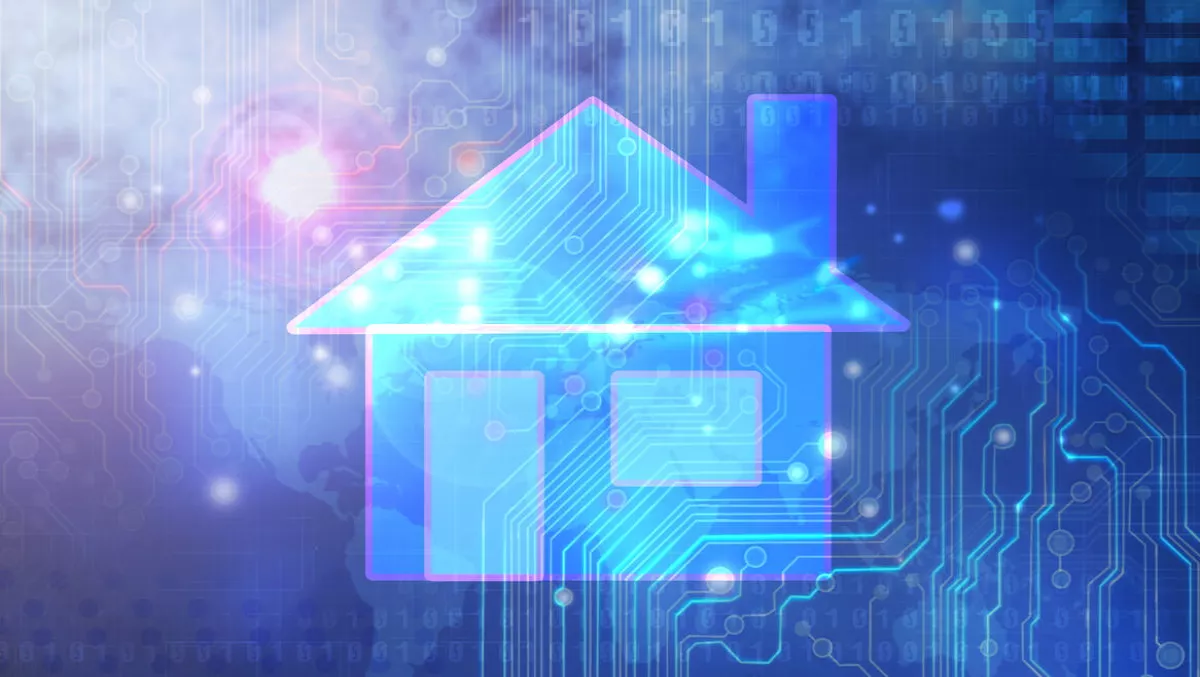
Karson: How Kiwi-Belgian connections created the world's first 'virtual butler'
It's a strange thing to actually sit and contemplate how automated and connected we're becoming. As for Bart Brichau, he is one of the people making those ideas a reality.
With dual Belgian and NZ citizenship, he has taken not only technology but also networks from both countries to secure knowledge, home automation, Internet of Things (IoT) tools - and a strong relationship with his co-founder based on twenty years of trust.
He is one of the creators of Karson, a virtual butler that enhances home automation in a user-friendly way. Using Internet of Things (IoT) technology, Karson will soon help to control and automate with new tools and equipment that are currently prototyping.
"Karson is a good example of 'it's who you know' to get there rather than 'it's what you know' (even though that is a vital ingredient to success also)," Brichau says.
The idea for Karson was born in late 2015, when Brichau's Rapallo customers asked him to integrate audiovisual remote controls with various home functions such as home theatre lighting and curtains.
"We started a journey of research into what is available in the market and soon we realised that there was not much around and it was quite expensive. I put two and two together when I was talking to my co-founder in Belgium and when he was telling me a few stories of AV integration they had done in Europe, it clicked," he says. With this revelation, Brichau flew to Europe to shape the idea and make it reality. In January 2016, the new company was founded in New Zealand. Production is soon to start in New Zealand for anticipated market launch of early 2017.
He says the Karson has received strong interest from larger building companies, and they now have a few reference customers. With a strong marketing and sales campaign aimed at the construction and renovation market, the company predicts growth not only in New Zealand, but also Australia, Singapore, Hong Kong and Vietnam.
"As soon as we hit a few 1,000 modules per month, we may have to move production to China (where we have negotiated terms for larger volume manufacturing). Karson would manufacture the hardware in China not just for Asia Pacific, but also for our European sister company," he says.
Brichau explains that while home automation has been around for a few decades, it still hasn't reached the tipping point of becoming mainstream or a commodity.
This is because it has been expensive, not user friendly and has little integration with other brands or technology. He points out that when installing automation tech, you're forced to use cables and installers all from the manufacturer's own brand.
"That is where Karson is making a difference: our solution is affordable (between 3 and 10 times cheaper than the competition), reliable (over the last few years, out of 400 units that were installed, only 1 was returned and only because the customer had connected the module incorrectly) easy to use (thanks to the cloud platform, self install and no limitations on what cabling you use) and easy to integrate (thanks to the application programming interface or API)," he explains.
He says that Karson and companies alike will be to the smart home industry what Apple is to the smartphone industry. Karson will take it further than Apple and allow for home automation to become a commodity: affordable and reliable.
"In addition, our view is that voice recognition will be more prolific than mobile apps. You want to actually talk to your virtual butler, without having to touch any mobile device. That is where Karson will enhance home automation."
Brichau points out that integration with existing equipment is core to the company's strategy. Building an 'app store' for integration purposes is the company's prime goal to make integration with hardware and software solutions as simple as possible.
In general terms, Brichau believes that IoT and home automation trends have been around in New Zealand for a while, although not necessarily as well-defined. He believes that it's still early days for home automation and IoT as everyone from big names to 'Kickstarter wannabes' try their hand at the market.
"Which products will remain? What standard (if any) will prevail? With Apple, Google and Amazon all jumping on the bandwagon, each with their own views on where this should go, it is hard to choose. For the moment," he says.
That's why the company is approaching their innovation step by step, using what is stable and workable. The basics must become before the experiments, and the 'evangelising'.
"For example, we need to re-educate the electrical installation sector and teach them how to change lighting wiring away from the 19th century into the 21st century. That is why it is important that everyone in our industry joins forces to agree on standards, educate consumers and installers, and collaborates as much as possible to fast track the inevitable: that within 5-10 years all homes will be "smart" in some shape or form," he concludes.


